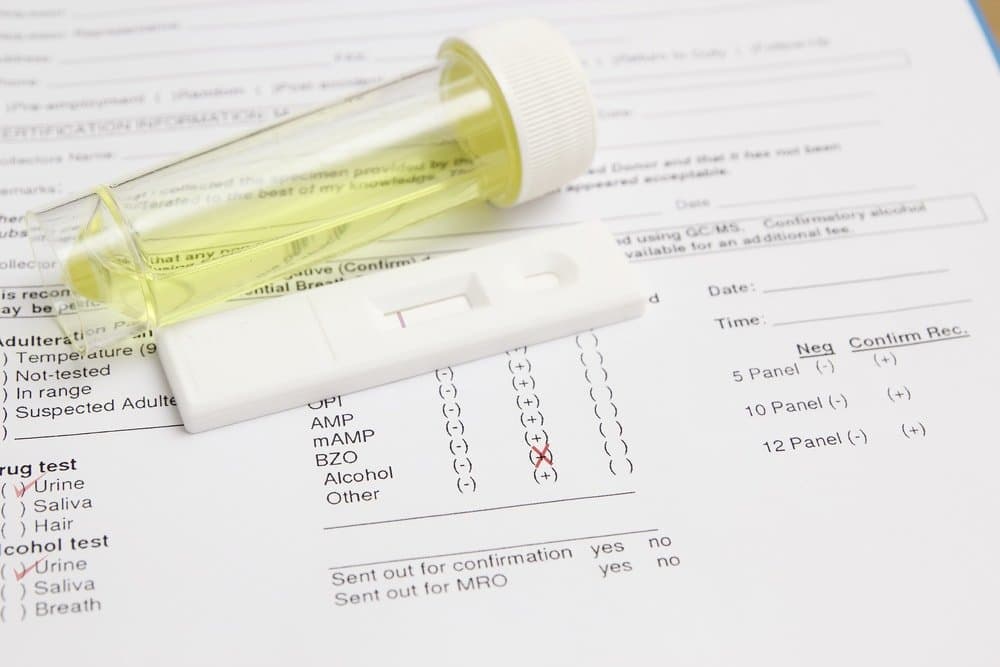Flexeril is a common drug used to treat pain, injuries, and muscle spasms. It is a brand name of the generic drug, cyclobenzaprine. This drug isn’t usually used for more than a couple of weeks. It is meant to relieve serious short-term problems.
While abuse of Flexeril isn’t as common as the abuse of some other drugs, such as opiates and benzodiazepines, it does happen.
Anyone using Flexeril should know it can show up on drug tests. Read on to learn more..
How Long Does Flexeril Cause Effects?
The effects of Flexeril last for about a day. The medication is meant to be taken once a day for just a couple of weeks. But once the body and brain effects of Flexeril have come and gone, the drug is still in your system. Flexeril can continue to cause side effects, even once the intended effects of pain relief and muscle relaxation have worn off.
Side effects of Flexeril include:
- Tiredness
- Drowsiness
- Headache
- Dizziness
- Upset stomach
- Dry mouth
- Nausea
- Constipation
Side effects and other complications are more likely to occur if you are abusing Flexeril. Remember, abuse of prescription drugs means taking them in any way other than exactly as prescribed by your doctor.
How Long Does Flexeril Stay in Lab Tests?
There are a number of reasons why you might be subjected to drug testing. Many workplaces drug test regularly, and others use drug screening in pre-employment scenarios.
Unless you are a known abuser of Flexeril, you probably won’t be tested for it. Most lab tests don’t look for this drug because it isn’t abused very commonly.
How long Flexeril shows up on a drug test is not the same for everyone. A number of factors can affect detection times, including:
- How you have used Flexeril: If you’ve been taking Flexeril as your doctor has instructed, you have probably been taking it once a day for only a few weeks at a time. However, if you have been misusing it or taking it for longer, it could show up on tests for a longer duration of time.
- Use of other substances: If you use other drugs, either recreationally or for medical purposes, it could make Flexeril show up on tests for longer. Alcohol, in particular, can slow down your body’s detoxing process because it is hard on the liver.
- Metabolism: People with fast metabolisms don’t just process food faster; they also detox from drugs like Flexeril faster. Many factors can influence the speed of your metabolism including genetics, age, weight, and overall health.
- The type of drug test: There are many different types of drug tests. How long Flexeril remains detectable will largely depend on what kind of test is being used.
The four main types of drug tests are as follows:
How Long Does Flexeril Stay in Your Urine?
Flexeril can stay in the urine for 3 to 8 days. This is the longest detection window for Flexeril, aside from hair testing. Urine tests are the most common workplace drug tests. Still, it is very unlikely that you would be tested for Flexeril at work.
Standard 12-panel drug tests, which are usually used by workplaces, do not usually include Flexeril testing. If your employer had a reason to believe that you’ve been abusing Flexeril, they may look for it.
How Long Does Flexeril Stay in Your Hair?
It’s very unlikely that any party would use a hair test to look for Flexeril. Most drugs show up on hair tests for around 90 days. But despite the long detection capability, these tests are pretty uncommon because they are not very accurate and they are expensive.
It is unlikely that you’d be tested for any drug via a hair sample, let alone an uncommon one like Flexeril.
How Long Does Flexeril Stay in Your Blood?
Flexeril has a very long half-life. The average half-life of Flexeril is around 18 hours, with a range of 8-37 hours depending on personal factors.
Based on this information, Flexeril might be detectable in your bloodstream for 6 days or more. Blood tests are very accurate, so they are most common in legal and law enforcement settings. They are less common in workplace scenarios, because they are more invasive and more expensive than urine tests.
How Long Does Flexeril Stay in Your Saliva?
Flexeril can be detected in oral fluids for 36 hours after the last time taken. Remember, factors like your dosage and frequency of use can affect this figure.
Some workplaces do use saliva tests, as they are often considered the least invasive form of testing. Remember, though, that you won’t be tested for Flexeril unless your employer has an explicit reason to do so.
Can You Speed up Flexeril Detox?
You cannot make your body process Flexeril faster. The only way to detox from the drug is to let your body go through its natural process once you stop taking it.
Some companies sell kits or products that advertise themselves as ‘detox aids’ which can speed this process up. None of these products are effective, and many can actually be dangerous.
If you have been abusing the drug, you may need to visit a detox center to deal with the effects of dependence and withdrawal symptoms.
Otherwise, consult with your doctor about how you should stop using Flexeril. They may have you simply stop using the drug abruptly, or they might recommend tapering your dose until you are no longer taking it.
Get Treatment for Flexeril Abuse
If you’re ready to put your Flexeril abuse in the past, call your local treatment center. They will have all the information you need to get started on the road to recovery.
If you visit Northeast Addictions Treatment Center to treat Flexeril addiction, your program will likely include elements such as:
- Therapy
- Group therapy
- Medication-assisted treatment
- Daily activities
- Skill building
- Activity therapy

